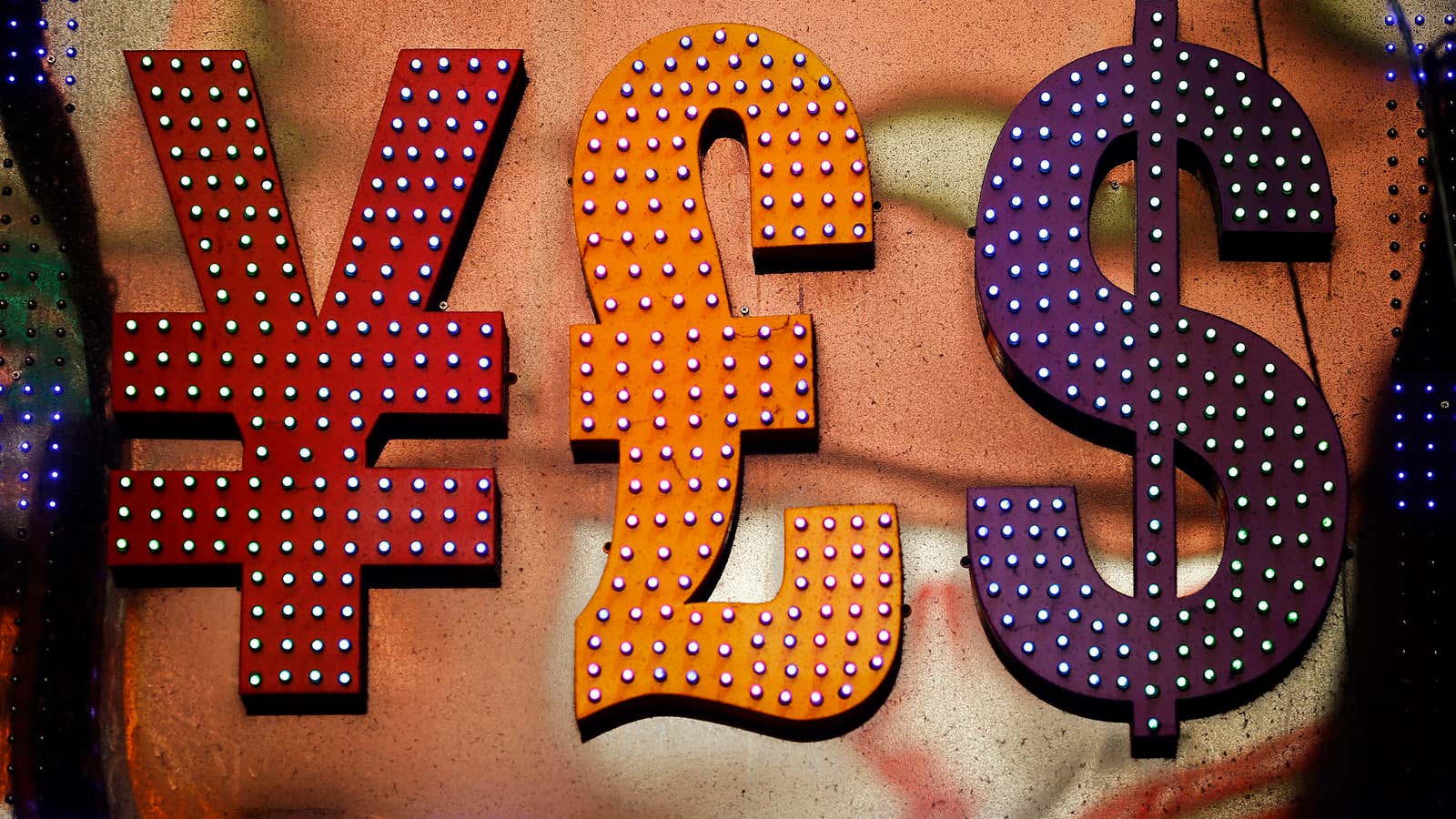This story is part of What Happens Next, our complete guide to understanding the future. Read more predictions about the Future of Money.
The future of money isn’t going to be a singular World Dollar or Galactic Credit: It’ll be multiplied into a million currencies.
This may sound crazy—after all, wouldn’t it be easier if everyone was using the same Universal Renminbi? But money is more than the medium of exchange you hand over in the store. It’s also something you want to keep for the long term. And maybe while one kind of money is best for Starbucks, another kind of money might be better for your pension.
We should set ourselves up for a world in which there are hundreds, thousands, or even millions of kinds of money. Your phone will show you the price of your latte in London Loot but transfer money in California Cabbage, Apple Apples, and SF Parking Permits. Although this style of diversification feels new, it actually finds its roots in the ancient past.
Social anthropologist Jack Weatherford wrote many years ago that the “electronic money world looks much more like the neolithic world economy before the invention of money than it looks like the market as we have known it in the past few hundred years.” Back then, money was memory: I owed you some corn, you owed the priest a cow, the priest owed me some wine. In the clan, the claims on assets were a collective memory—an immutable mental blockchain.
That didn’t scale though. Isolated villages became connected, trade moved beyond purely being local, and the growth of towns and cities made it impossible to remember who owed what and to whom. We needed an intermediary.
We took the means for deferred payments (the settlement of debts) and turned them into stores of value that could be traded. They, in turn, became a medium of exchange: Asset claims moved from memory to clay tablet to coins.
Today we are no longer in the clan village of the ancient past or the urban anonymity of the recent past: We are in Marshall McLuhan’s global village, where the digitization of the world allows us to be connected to everyone, everywhere, all the time. Instead of brain memory, we have social media, mobile phones, and shared ledgers. This is why Weatherford predicts that the intermediary of money will soon no longer be needed—as we no longer need to remember.
We assume that the way money works now—fiat currency controlled by central banks—is a law of nature. It isn’t. It is a particular set of man-made, transient institutional arrangements. The former governor of the Bank of England Mervyn King says in his recent book The End of Alchemy that central banks’ “extinction cannot be ruled out altogether.”
One size does not fit all—just look at the euro, a currency that was meant to unite several nations, but is increasingly causing divisions. Think how difficult it is going to be to maintain monetary policy across so many countries with different economies (i.e., satiating both Germany’s strength and supporting Greece’s weakness), and then try and imagine a single world currency. Having the same monetary policy for Spain and Slovakia is nothing compared to having the monetary policy for Earth and Alpha Centauri Planet 9.
King and Weatherford are right: The money of the global village won’t be limited to a few national or supranational central banks. Blockchain and cryptography technologies mean that literally anyone can now create money. Communities rather than individuals will become central to money creation, and these currencies will be imbued with the values of the communities that create it. I might choose to save Islamic e-Dinars that are backed by gold, you might choose to save KwH$$$ that are backed by renewable electricity, but we’ll be able to do business together because exchanges on our AI smartphones will make it so.
I’m not smart enough to know what the future of money is going to be, but I know what it won’t be: a fiat chromewash, blockchain lipstick on the nation-state currency pig.
This story is part of What Happens Next, our complete guide to understanding the future. Read more predictions about the Future of Money.
